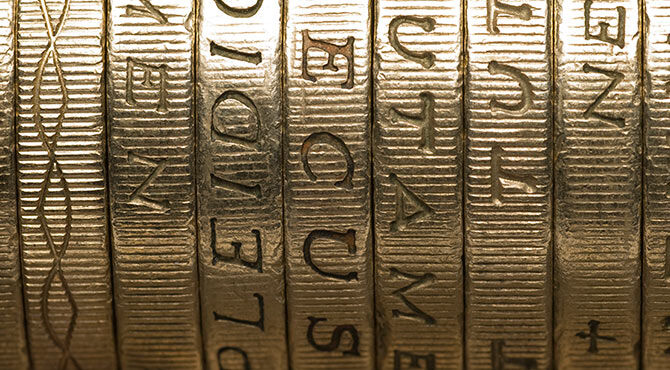UK inflation rise sparks interest rate hike speculation
Rising petrol, clothing and food prices are only part of the inflation story. What do the experts think about the UK’s economic future?

UK pound surges
Ironically, the latest figures prompted a surge in the pound's value on international markets amid expectations that the jump in inflation would prompt the Bank of England's Monetary Policy Committee to increase record low interest rates earlier than expected, perhaps as early as February.The data also increased pressure on the government to scrap the annual, one per cent cap on public sector pay rises, which has been in force since 2010, as inflation continued to outstrip increases in take-home pay.Economists also expressed concern that, aside from the headline RPI figure, 'core' inflation, which strips out volatile items such as petrol and food, was now running at a six-year high of 2.7 per cent.Global weather and geopolitical worries also responsible for UK inflation
The ONS said that the fall in the value of sterling since the referendum was the primary factor behind the RPI rise but Edward Hardy, economist at currency firm WorldFirst, also suggested that global weather and geopolitical worries were also partly responsible.“Petrol prices have come back to bite: after two months of stagnant energy costs, weather disruption in the Gulf of Mexico twinned with geopolitical tensions on the Korean peninsula have lit a fire under commodity prices," he said.Inflation risks will be increased by sustained sterling weakness
Howard Archer, chief economic adviser to EY ITEM Club, said that inflation now looked likely exceed three per cent in the near future "but there remains a good chance that this will be the peak barring sustained renewed sterling weakness".He added, "The MPC will likely warn on Thursday that any sustained sterling weakness will increase inflation risks and could prompt an interest rate hike sooner rather than later."The MPC may also well warn once again that interest rates are likely to rise earlier and a little faster than markets currently expect and indicate that businesses and consumers need to take this possibility on board."Related stories:
- UK inflation rate in surprise fall in June
- IMF confident of Eurozone growth – not so for US and UK
- UK economy still sluggish despite services pick-up
Ranko Berich, head of market analysis at Monex Europe, said the RPI figure had “smashed expectations”, boosting sterling's value but prompting fears of a fall in consumer spending in the coming month, harming economic growth.
Retailers passing costs straight to consumers
“The breadth of today’s inflation surprise is striking," he said. "All of the headline price indices...printed higher than median forecasts. The record 4.6 per cent increase in clothing and footwear indicates that retailers are passing cost increases straight to consumers."On the whole, today’s figures highlight just how hard inflation is continuing to bite into real wages, although it will be interesting to see how nominal wages perform in tomorrow’s labour market data. As real wages fall, consumer spending is likely to come under further pressure this year, after a wobble in the first quarter."Andrew Sentence, a PwC economist and former MPC member, said he feared inflation would keep rising while Ben Brettell, senior economist at Hargreaves Lansdown, felt RPI might now be peaking. "Data released tomorrow is expected to show pay increasing at 2.2% in the three months to July, meaning wages are still shrinking in real terms," he said."Yet it looks likely that inflation will fall back in the coming months, as the effect of Brexit-induced sterling weakness falls out of the year-on-year calculation."Cost-of-living squeeze continues
Frances O'Grady, general secretary of the Trades Union Congress, said the figures showed the "cost of living squeeze" was continuing, with rising inflation out-pacing wages. "The government needs to get a grip and get pay rising across the economy," she said.Liberal Democrat leader Vince Cable also called on Prime Minister Theresa May to act urgently to scrap the cap on public sector pay. “Rising inflation shows how urgent it is to address the sense of unfairness around the pay cap," he said.“With these numbers our nurses, teachers and other public sector workers will experience a two per cent pay cut in the coming year. This will only aggravate the recruitment and retention crisis we are facing. The government must take urgent steps to lift the pay cap for all public sector workers, and increase wages in line with inflation.”A spokesman for HM Treasury said, "We know some families have concerns with their day-to-day cost of living. That’s why we are boosting take home pay with tax cuts for over 30 million people and a National Living Wage that is giving the lowest earners their fastest pay rise for 20 years."For related news and features, visit our Enterprise section.Access hundreds of global services and suppliers in our Online Directory Get access to our free Global Mobility Toolkit
Get access to our free Global Mobility Toolkit 
©2026 Re:locate magazine, published by Profile Locations, Spray Hill, Hastings Road, Lamberhurst, Kent TN3 8JB. All rights reserved. This publication (or any part thereof) may not be reproduced in any form without the prior written permission of Profile Locations. Profile Locations accepts no liability for the accuracy of the contents or any opinions expressed herein.






























